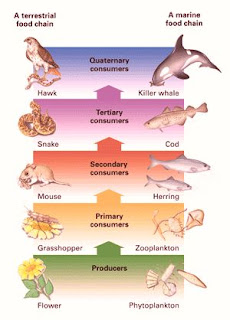Chapter: Our Environment
Q1: Define Ecology
Answer: Ecology is a scientific study of the interactions between organisms and the environment. Ecology integrates all areas of biological research and informs environmental decision.
Q2: What is the scope of Ecology Research?
Answer: Ecology study can be broadly classified as:
a. Organismal Ecology
b. Population Ecology
c. Community Ecology
d. Ecosystem Ecology
e. Landscape Ecology
f. Global Ecology
In nutshell, Ecology study advocates protection of nature and the environment.
Q3: Define Ecosystem.
Answer: An environment comprises of all living (biotic) and non-living (abiotic) things that occur naturally on the Earth or any of its region. All these living organisms interact with each other and their growth, reproduction and other activities are affected by the abiotic components of ecosystem.
Q4: Is garden an example of Ecosystem?
Answer: Yes. In an garden, all biotic components (e.g. plants, trees, animals like rats, frogs, birds, insects etc.) interact with each other and with abiotic components (garden soil, water etc.) for their growth and reproduction and other activities. Thus garden forms an ecosystem.
Q5: Give examples of natural ecosystems.
Answer: Forests, ponds, lakes, sea, oceans, coral reefs, rivers etc.
Q6: Give examples of human made (artificial )ecosystems.
Answer: Gardens, Crop-fields etc.












